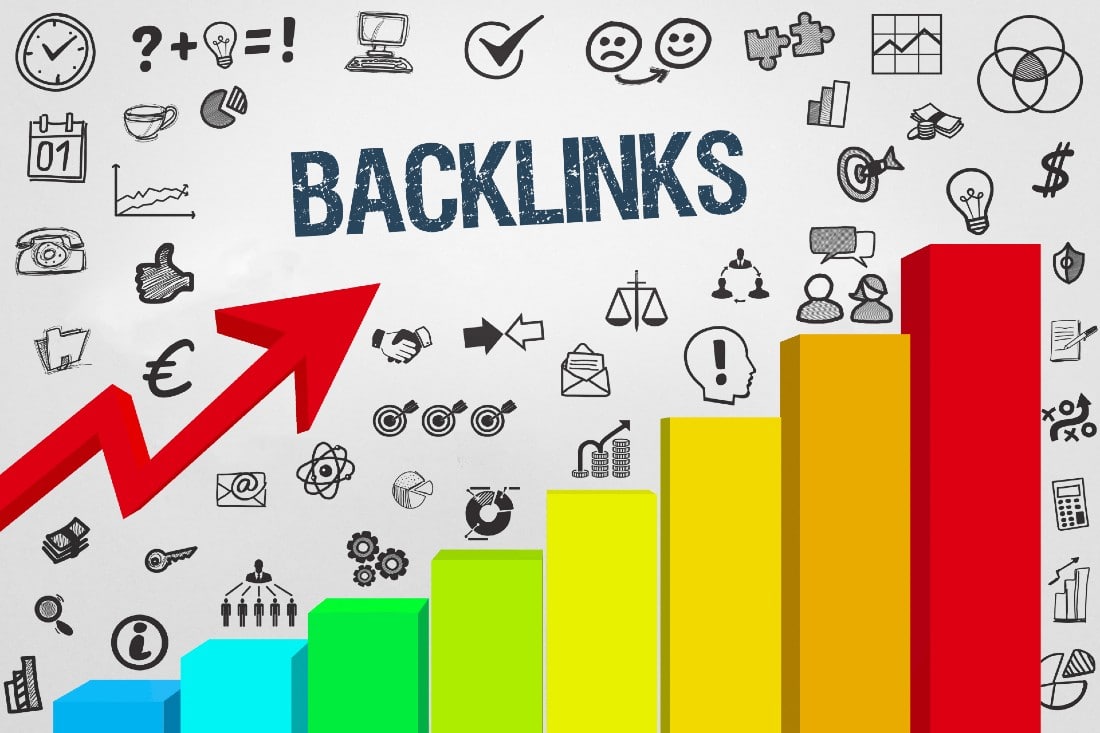Backlinks play a crucial role in search engine optimization (SEO).
They are an essential part of building a website’s authority, improving its search engine rankings, and driving organic traffic. In this comprehensive guide, we will explore what backlinks are, why they are important for SEO, and how to get high-quality backlinks to your site.
Backlinks are essentially links that one website receives from another. When a website links to another site, it is seen as a recommendation or a vote of confidence by search engines like Google. The more backlinks a website has from reputable sources, the more trustworthy and authoritative it is considered.
Backlinks not only benefit your website’s SEO performance but also help in driving referral traffic. When another website includes a link to your site, it opens up the opportunity for users to click on that link and visit your website. This can lead to increased visibility, brand awareness, and potential conversions.
In addition, backlinks can also contribute to improving your website’s domain authority. Domain authority is a metric developed by Moz that predicts how well a website will rank on search engine results pages (SERPs). Websites with a higher domain authority are more likely to rank higher in search results.
Overall, backlinks are an essential component of any SEO strategy, and understanding how to acquire high-quality backlinks can greatly benefit your website’s visibility and organic traffic. Next, let’s dive into what exactly backlinks are and how they work in the world of SEO.
What Are Backlinks?
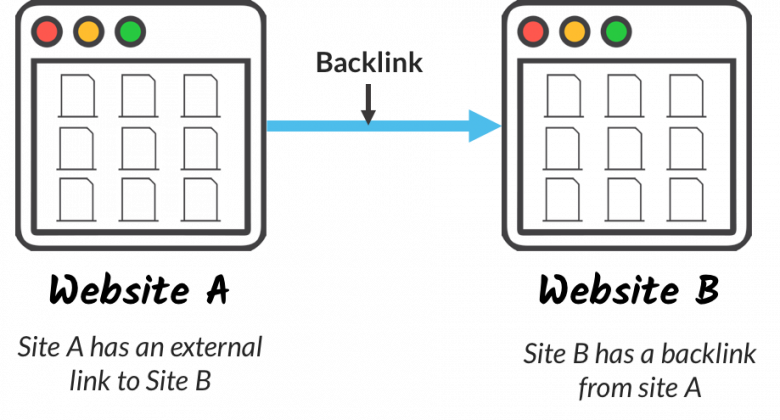
Backlinks are links from other websites that point to your website. They serve as votes of confidence or endorsements, signaling to search engines that your content is valuable and trustworthy.
Search engines like Google view backlinks as one of the top ranking factors, using them to determine a website’s authority, relevance, and prominence. Pages with more high-quality backlinks tend to rank higher in search engine results. However, not all backlinks are created equal. High-quality backlinks come from authoritative, relevant websites and are placed naturally within the content. Factors that determine a backlink’s value include the linking site’s domain authority, relevance to your niche, placement on the page, and anchor text.
Low-quality or spammy backlinks from irrelevant or untrustworthy sites can actually harm your SEO efforts and lead to penalties from search engines. It’s important to focus on earning natural, high-quality links rather than engaging in manipulative link schemes
Some effective strategies for building quality backlinks include creating valuable, linkable content, guest blogging on relevant sites, broken link building, leveraging partnerships and relationships, and earning links through PR and brand mentions
Consistently acquiring diverse, high-quality backlinks from unique domains is key to improving your website’s search engine rankings, driving referral traffic, and establishing your brand as an authority in your industry
Are All Backlinks Valuable for SEO?
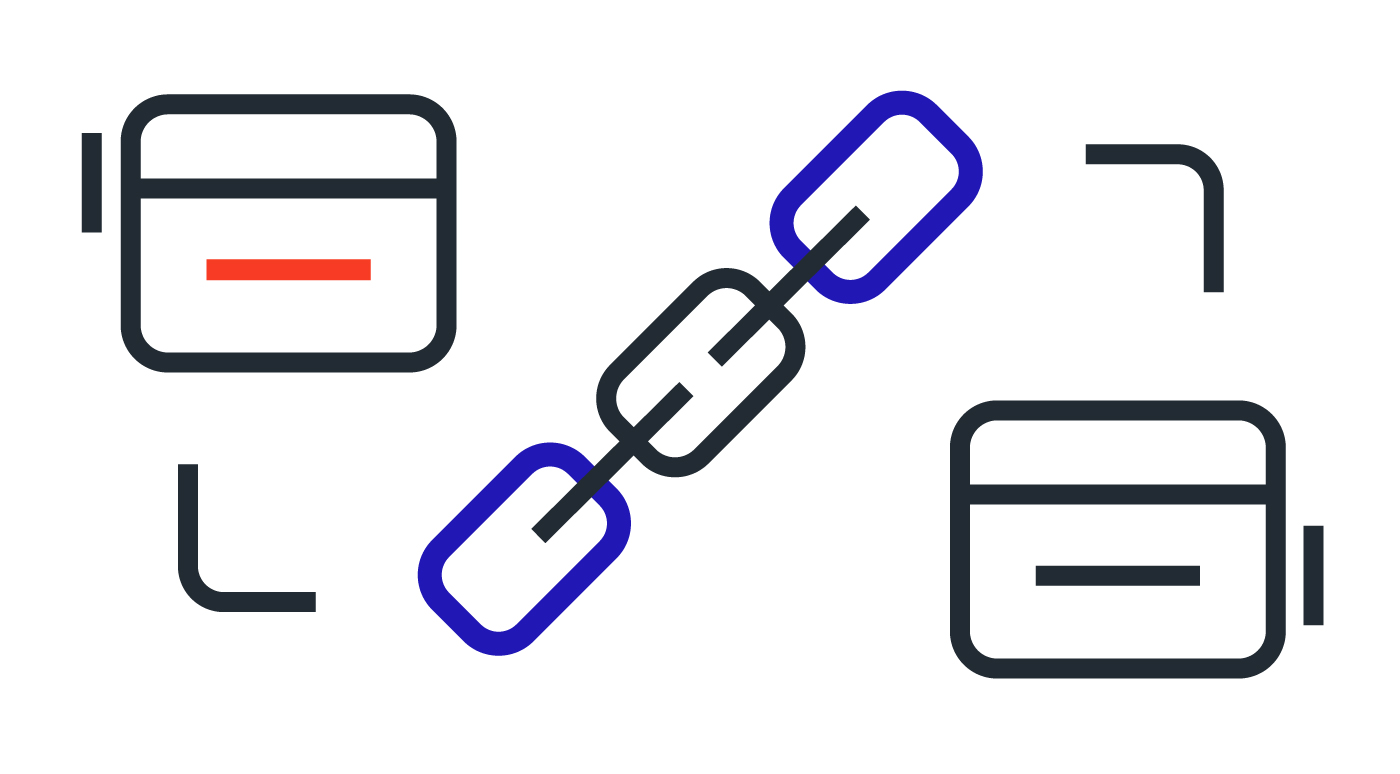
No, not all backlinks are valuable for SEO (Search Engine Optimization). The quality and relevance of backlinks matter more than the quantity.
Here’s a brief explanation:
- High-quality backlinks from reputable, relevant websites carry more weight and are more valuable for SEO.
- Low-quality or spammy backlinks from irrelevant or suspicious websites can actually harm your website’s search engine rankings.
- Search engines like Google can identify natural, earned backlinks versus artificially created or purchased backlinks, and they devalue the latter.
- Backlinks from websites in a related niche or industry are considered more relevant and valuable than random, unrelated backlinks.
So, while having more backlinks is generally better, it’s crucial to focus on earning high-quality, relevant backlinks through tactics like creating valuable content, building relationships with other websites, and engaging in legitimate link-building practices.
For SaaS companies, Vh-info’s link building services can help acquire valuable backlinks from authoritative sources.
What Are the Best Backlinks in SEO?
In SEO, the best backlinks are those that come from reputable sources and contribute to a website’s authority and visibility.
Here are some characteristics of the best backlinks:
- Domain authority: Backlinks from websites with high domain authority are considered more valuable and can have a significant impact on improving a website’s own domain authority.
- Follow links: Follow links, also known as dofollow links, pass link equity from the linking website to the linked website. These types of backlinks are valuable for SEO as they contribute to a website’s authority and search engine rankings.
- Relevance: Backlinks that come from websites or pages that are topically related to your own website are considered more valuable. Relevance helps search engines understand the context and relevance of the linked content, which can positively impact search engine rankings.
It’s important to note that while the characteristics mentioned above contribute to the value of a backlink, a diverse backlink profile with a mix of different types of backlinks is also important for SEO. Vh-info focus on acquiring high-quality, relevant backlinks that meet these criteria.
Does Linking Out Hurt Your Site’s SEO?

No, linking out to other relevant and high-quality websites does not hurt your site’s SEO. In fact, it can actually help by showing search engines that your content is well-researched and providing value to users. However, linking to spammy or low-quality sites can have a negative impact. The key is to link out judiciously to authoritative and trustworthy sources related to your content.
What Types of Backlinks are Valuable?
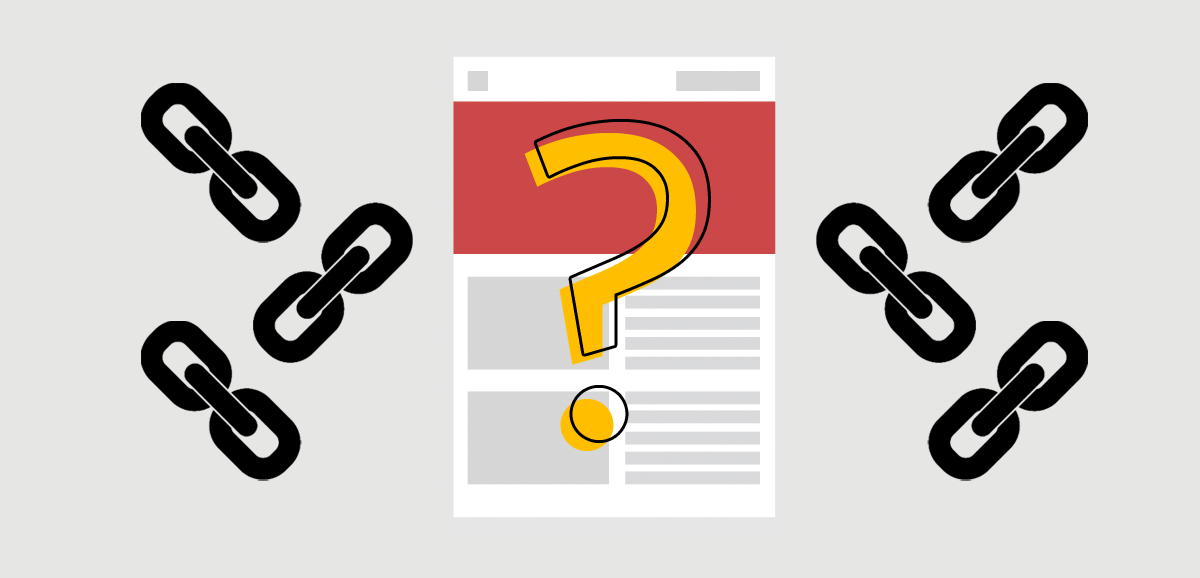
All backlinks are not of equal value. To improve your search engine rankings, prioritize acquiring high-quality backlinks.
In simpler terms, one high-quality backlink can hold more weight than a thousand low-quality ones. Interestingly, top-notch backlinks often exhibit similar key characteristics.
Trait #1: They Come From Trusted, Authoritative Websites
Backlinks that come from trusted, authoritative websites hold significant weight in the realm of SEO.
These high-quality backlinks are considered valuable due to the credibility and reputation of the originating source. Search engines view such backlinks positively as they signal to the algorithms that your content is associated with reputable sources.
Backlinks from these trusted sites can enhance your website’s domain authority and improve your rankings in search engine results pages.
They act as a vote of confidence for your content, indicating to search engines that your website is a reliable source of information within your particular niche. Acquiring backlinks from such esteemed websites is a crucial aspect of a successful link building strategy.
Trait #2: They Include Your Target Keyword In The Link’s Anchor Text
Having your target keyword embedded in the anchor text is a vital trait for backlinks. This practice not only reinforces the relevance of the link to the content but also contributes significantly to your site’s SEO efforts.
When the anchor text matches your target keyword, it signals to search engines the content’s subject matter. Such alignment enhances the link’s credibility and authority, positively impacting your search engine rankings.
Furthermore, incorporating your keyword in the anchor text helps users understand what to expect when they click on the link, leading to improved user experience and higher chances of engagement.
Trait #3: The Site (and Page) Linking to You Is Topically Related To Your Site
The relevance of the linking site and page to your content is crucial for the credibility and effectiveness of backlinks.
When external sites linking to yours are topically related, it signals to search engines that your content is trustworthy and relevant within its niche. This relevance enhances the user experience, as visitors are more likely to find value in exploring related topics across different sites.
Moreover, topically related backlinks contribute to establishing your website as an authority in a particular subject area, potentially boosting your search engine rankings and attracting a relevant audience that aligns with your content offerings.
Trait #4: The Link Is a “Dofollow” Link
Dofollow links pass on link equity and help improve a website’s authority in the eyes of search engines. Unlike nofollow links, dofollow links allow search engine crawlers to follow the link to its destination.
This type of link can positively impact a website’s search engine rankings by passing on ranking power. It’s crucial to have a healthy mix of dofollow links in your backlink profile to signal to search engines that your website is reputable and valuable.
Trait #5: The Link Is From a Domain That Hasn’t Linked to You Before
When considering the quality of backlinks, an essential trait is that the link originates from a domain that has not previously linked to your website.
These unique links from new domains add diversity to your backlink profile, indicating to search engines that your content is valued by a wider online audience. Such diversity can positively impact your site’s authority and credibility, therefore enhancing your search engine rankings.
20 Types of SEO Backlinks

Here are 20 different types of backlinks that can be valuable for SEO:
- Editorial backlinks from high-authority websites or publications
- Guest post backlinks from relevant industry blogs
- Directory listings and citation backlinks
- Backlinks from trusted resource pages
- Backlinks from educational sites (e.g., .edu domains)
- Backlinks from government or nonprofit websites
- Backlinks from industry influencers or thought leaders
- Backlinks from forums and online communities
- Backlinks from social media platforms
- Backlinks from business partner or supplier websites
- Backlinks from customer testimonial pages
- Backlinks from product or service review sites
- Backlinks from research studies or surveys
- Backlinks from infographic promotions
- Backlinks from branded image sharing
- Backlinks from blog comments (on high-quality sites)
- Backlinks from interview features or expert roundups
- Backlinks from local business listings and directories
- Backlinks from online media coverage or press releases
- Backlinks from repurposed or syndicated content
The quality, relevance, and authority of the linking website play a crucial role in determining the value of these backlink types for SEO.
How To Check Backlinks?
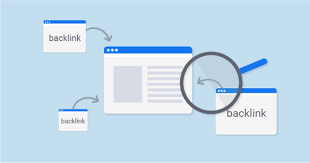
Checking Backlinks To Your Website
To check backlinks pointing to your own website, you can use tools like Google Search Console or paid SEO tools like Ahrefs, Semrush, or Moz. These tools provide detailed reports showing the websites linking to your site, the anchor text used, and valuable metrics about each backlink.
Checking Backlinks To Another Website
To analyze the backlink profile of another website, most SEO tools offer a “Site Explorer” or “Backlink Checker” feature.
Simply enter the competitor’s URL, and the tool will fetch and display all the backlinks it has discovered pointing to that site. This data can reveal link-building opportunities for your own site, allowing you to reach out to the site owner and potentially earn backlinks.
How to Get Backlinks to Your Site?
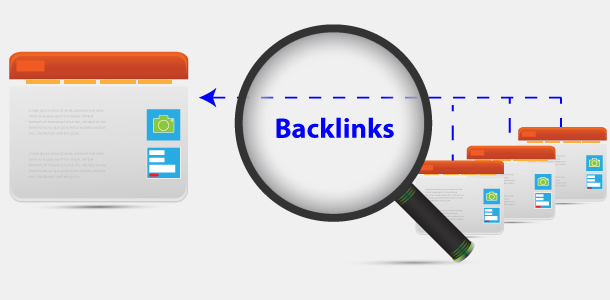
There exist numerous strategies for creating top-notch backlinks for your website, all geared toward enhancing brand visibility, driving referral traffic, and boosting search engine rankings.
Create Great Content
One great way to get SEO backlinks is by making really good content that people naturally want to share links to. This content could be informative, interesting, or even funny—just something people find valuable enough to share.
For instance, if you make a video or write a blog post that teaches people how to do something useful, others might link to it as a helpful resource in your industry.
Use HARO To Respond To Journalists’ Requests
HARO, or Help a Reporter Out, is a great way to start building links that benefit both you and journalists. It connects journalists with sources, and if they use your content, they might link back to you. You can sign up for free or choose paid options for more features.
After signing up, you’ll get emails with source requests relevant to your industry. Respond with a detailed pitch, including answers, relevant links, and contact info. Journalists across different fields need good sources, so providing helpful information can lead to valuable backlinks, boosting your site’s credibility and search engine ranking.
Write Press Releases
Press releases are documents that share important news with journalists so they can write their own stories about it.
For instance, you might do a study, create a press release about what you found, and offer it to industry publications. This is a big part of digital PR.
Prowly’s Media Pitching Tool helps by suggesting publications, offering contacts, and letting you import your own contact list. It’s a simple and powerful way to find email addresses for the right people.
Recover Broken Backlinks
Broken backlinks are links that lead to pages that no longer exist on your website, such as deleted URLs.
It’s important to fix these links for a better user experience and improved SEO. You can start by using Semrush’s Backlink Analytics tool to analyze your domain.
Then, go to the “Indexed Pages” tab and check for “Broken Pages.” If you have suitable replacement pages, use a 301 redirect to direct the broken link to the new page.
Otherwise, reach out to the website that has the broken link and ask them to update it.
Try Broken Link Building
Broken link building involves identifying broken backlinks on competitors’ websites and persuading the website owner to replace them with links to your site. You can use Semrush’s Backlink Analytics tool to spot these chances easily.
Just study a competitor’s domain and look for “Broken Pages” in the “Indexed Pages” tab.
Find a broken link you can replace, then check its backlinks by clicking the number in the “Backlinks” column. Use features like follow links and high Authority Scores to target the best opportunities.
Analyze Your Competitors’ Backlink Profiles
You can target different types of backlinks that your competitors already have by using strategies like the skyscraper technique or seeking inclusion in product comparison roundups.
To start, use the Backlink Gap tool and add your domain along with up to four competitor domains. Click “Find prospects” to see backlinks your competitors have but you don’t. Filter results by Authority Score for high-quality prospects.
Save potential backlinks in the Link Building Tool, which provides contact info and lets you send personalized outreach emails. Monitor progress and track earned backlinks in the “In Progress” tab of the Link Building results page.
FAQ’s:
How Do Backlinks Improve SEO?
Backlinks enhance SEO by increasing your website’s authority and improving its rankings for targeted keywords in search engine results. Quality backlinks from reputable websites are more impactful than simply having a high quantity of backlinks.
Are Backlinks Legal?
Backlinks are not only legal but also crucial ranking factors for search engines like Google. However, not all backlinks or linking strategies are beneficial; Google and others discourage unnatural linking practices such as paying for links.
How Many Backlinks Should a Website Have?
The ideal number of backlinks for a website varies based on its niche and competitors. Beyond quantity, the quality of backlinks matters significantly; having fewer but high-quality links is more beneficial than numerous low-quality ones.
How Many Backlinks Per Month Are Good For SEO?
Typically, a grade of 60 to 100 is outstanding, 40 to 50 is decent, and below 40 is less favorable. For top-quality backlinks, focus on obtaining links from websites with good domain authority that are relevant to your topic and trusted by global search engines.
How Do I Get Backlinks From High-Authority Sites?
To get backlinks from high-authority sites, the best way is to focus on creating exceptional content that provides value to their audience. Then, reach out and build relationships with editors, influencers, or website owners in your niche. Offer to contribute guest posts, get featured in expert roundups, or collaborate on relevant content that naturally earns high-quality backlinks from authoritative sources.
Can Buying Backlinks Help Improve My Website’s Search Engine Ranking?
No, purchasing backlinks from websites won’t boost your rankings. Paid backlinks need a sponsored tag to be ignored by search engines; websites with paid links lacking this tag are often penalized.
How Can I Check The Quality Of My Backlinks?
To check the quality of your backlinks, use SEO tools like Ahrefs or Semrush to analyze metrics like the Domain Authority and Page Authority of the linking websites. Additionally, manually review the backlinks to ensure they are coming from topically relevant and trustworthy sources that search engines would consider valuable.
Are Backlinks Still Relevant in Today’s SEO?
Yes, backlinks are still highly relevant and important for SEO today. Although search engines have evolved, high-quality backlinks from authoritative and relevant websites continue to be a major ranking factor. They signal to search engines that your content is valuable, trustworthy, and endorsed by other credible sources.
Conclusion
In conclusion, backlinks play a crucial role in boosting SEO rankings by demonstrating credibility and authority to search engines. Not all backlinks are valuable, as quality matters more than quantity. Valuable backlinks come from trusted, authoritative sites relevant to your content.
To improve your backlink profile, focus on creating high-quality content, utilizing tools like HARO, writing press releases, and analyzing competitors’ backlinks. Remember, quality over quantity is key when it comes to backlinks for effective SEO strategies.

